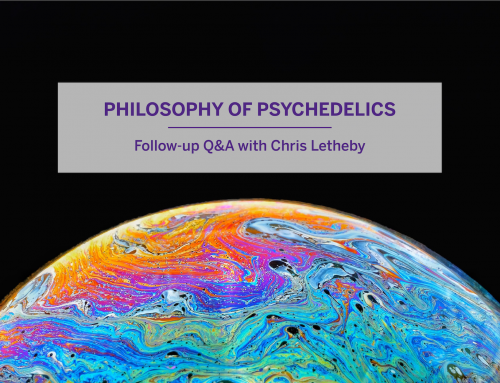
Von Wright (right) with Wittgenstein.
Most of my intellectual development growing up was through books. I read basically anything I could get my hands on. Books were more important to me than school and I never paid much attention to school until I arrived at Uppsala University in 1992. I was there, after considerable disagreement with my parents and an engineering degree in electronics, to study literature. I, however, also took introduction to philosophy. The professor was a philosopher of science and on the syllabus he had included a book by the Finnish philosopher Georg Henrik von Wright published in Swedish in 1986 called Vetenskapen och förnuftet (in English: Science and Reason).
Von Wright was, although he is less of an influence on philosophy now, a very important and highly influential 20th century philosopher. He was called very young to Cambridge to replace Wittgenstein as the chair of philosophy. He wrote many books, but perhaps Norm and Action and Varieties of Goodness, which were based on his Gifford Lectures from 1958-60, are the most important. He also contributed to the early development of modal, foremost deontic, logic. (For more on von Wright see http://en.wikipedia.org/wiki/Georg_Henrik_von_Wright.)
It was largely the 1986 book on science and reason that made me want to continue my studies in philosophy and hence made me want to become a philosopher myself. Having been involved in a leading role with the development of the Rotman Institute of Philosophy since it was founded in 2008, I have come to return to von Wright’s book and to the ideas in it. His motivations for writing the book both squarely fall under the mandate of the Institute. He writes: “There are two reasons behind this book. One is the desire to understand the basis of the world-view that modern science has given us. The other is a desire to evaluate the influences on life that science has had through technology and industrial production forms.”
The development of modern science is in many ways a miracle and without a doubt the most important achievement of the human mind. Understanding the rationality behind it and the world-view that it gave rise to is one of the most important tasks of an intellectual historian. Von Wright outlines three aspects of the form of rationality exhibited by the modern scientific world-view.
The first has to do with the relationship between human beings and nature that is embedded in the modern world-view. Von Wright sees this as the development of a new concept of nature; a concept where humans are subjects and nature an object. We are outside nature as observers, manipulating it. Descartes dualism is a perfect example of this view. By o
bjectifying nature a sharp distinction between fact and value, what is described and prescribed, is also created. Values or norms are subjective and cannot be found by studying nature.
The second aspect of this new way of thinking has to do with how wholes are related to their parts. Both material bodies and events in nature can be analyzed and divided up into its most elementary parts, which determine the whole. The whole must be understood from its parts. Hence, this is a mereological world-view. It can also be described as an atomistic view of nature where there are some smallest units that are the elements of causal interaction.
This way of reasoning about nature is also codified in early modern discussions of method. To divide something into its parts is called analysis and the construction of the whole from parts is called synthesis. Both Descartes and Galileo gave descriptions of the two methods. Galileo, for example, talks about a metodo risolutivo and a metodo compositivo. A famous example is the throwing of a stone, which if it is thrown straight up, it climbs with decreasing speed until a certain point at which it starts to fall. The actual motion upwards can be seen as a synthesis of two independent motions, namely one upwards uniform motion and a downwards accelerating motion. If you know the laws for falling objects and uniform motion, then you can calculate how the stone will move, that is, how high it will climb, when it starts to fall, etc.
The third main aspect of the form of rationality, that von Wright identifies, is the role experiment plays in the attempts to understand nature. In an experiment, the scientist isolates a part of nature that she can control and manipulate. It is an ‘artificial nature’ that she can overview and where the results are repeatable and predictable. The experiment is the manifestation of a manipulative attitude to nature. This view is utterly foreign to ancient thought and is instead related to magic and alchemy. Hannah Arendt’s notion of homo faber or humankind as creator also fits well into this perspective.
One aim of the new science was to make humans masters of nature, both Descartes and Bacon testify to this. To quote Bacon: science will create a “dominion of man over the universe”. By coupling this form of rationality with the Judeo-Christian view of human beings as created in the image of God with the right to rule over nature and all other living creatures, the foundation was laid for an enormously successful and dominant world-view. Foremost due to technology, which was early associated with the new science, this form of rationality completely dominates our way of thinking even now, but although it has created prosperity in certain parts of the world never before seen in human history, it has not only been beneficial and many contemporary problems have their source in this very form of thinking. The second part of von Wright’s book deals with the influences of modern science on the world.





